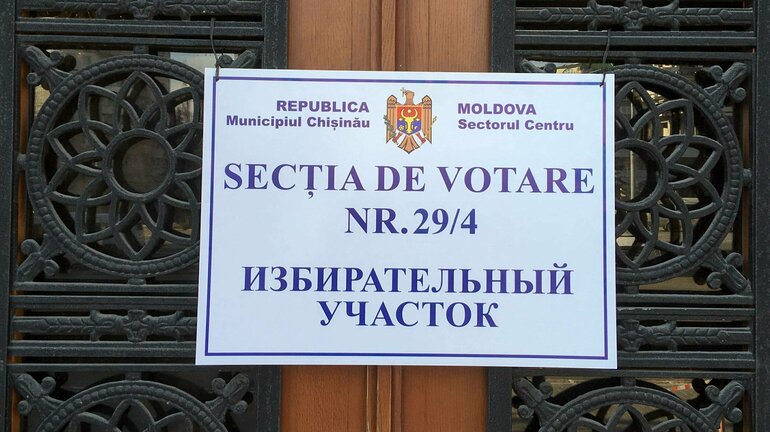Moldova’s presidential election: little trust in the political class

In the first round of Moldova’s 2020 presidential election, held on 1 November, the pro-European leader of the Party of Action and Solidarity (PAS) Maia Sandu won the largest share of the vote, with 36.2 per cent, while the pro-Russian candidate and incumbent president Igor Dodon gained 32.6 per cent. Despite a tight race, the campaign has so far been quiet and uninspiring. Turnout, at 42.8 per cent, was at an all-time low.
Political observers had interpreted the lacklustre campaign as the calm before the storm, speculating about post-electoral disputes due to allegations of fraud and potential mass protests. However, it has become evident that there is relatively little enthusiasm for the election so far. The outcome of the second-round remains open and hard to predict. The election observation mission of the Organisation for Security and Cooperation in Europe, which due to Covid-19 pandemic has been down-scaled, valued the professional organisation of the first round under the given circumstances, but noted widespread allegations of vote-buying and organised transportation of voters.
After the inconclusive February 2019 parliamentary election and four months of a political vacuum, the pro-Russian Socialist Party (PSRM) and ACUM, a pro-European alliance, unexpectedly formed a coalition in June 2019 to remove Moldova’s oligarchic regime from power. However, the PSRM/ACUM government lasted only until November 2019. The subsequent technocratic government, installed by Dodon and backed by PSRM and the Democratic Party (PDM), formerly led by oligarch Vladimir Plahotniuc, has not impressed with its achievements so far. Because of the coronavirus pandemic, among other issues, the country’s economy is in trouble, while an ongoing reform process has progressed sluggishly.
In addition, many Moldovans seem to have lost interest and trust in the political class. A poll before the first round of the election indicated that many citizens did not know whom to vote for. When asked which Moldovan politician they trusted most, 62.9 per cent of respondents answered that they trusted no one.
A lack of credible candidates
Most of the presidential candidates were unappealing to the electorate. Besides Dodon and Sandu, none of them stood a chance of entering the second round.
The contenders mostly addressed very specific segments of the electorate. Several candidates promoted unification between Moldova and Romania, an idea that today inspires no more than 20 per cent of the Moldovan population. Other candidates represented the interests of the former oligarchy or the pro-Russian opposition. Andrei Năstase, head of the Dignity and Truth Platform Party, emerged from an anti-establishment civic movement but has now disillusioned most of the electorate as well. Sandu and Năstase, who were once partners in the ACUM coalition, are now rivals who for months have been sparring openly in the Moldovan media.
Dodon and Sandu have also lost much of their appeal. Dodon, now running as an independent but backed by PSRM, is widely accused of being corrupt, rigging the election, and being overly friendly towards Russia. According to his own statements, Dodon is an adherent of a ‘balanced foreign policy’, but his frequent visits to Moscow testify to his actual inclination. He lost much of his credibility when it was revealed that PSRM had probably received illegal financing from Russia. Dodon denied the accusations but has faced corruption allegations ever since.
Sandu’s presidential campaign is driven by a strong anti-corruption agenda, with the aim of ‘cleansing the political class’. This is remarkable given that Sandu herself belonged to the political establishment in the past. Despite her anti-oligarchic agenda, Sandu had no qualms about joining forces from the opposition bench with Pro Moldova and the Șor Party, which both entered the parliament thanks to their close ties with Plahotniuc, to file a no-confidence motion against the Socialist-led government, which it survived.
Concerns about the electoral process
In the run-up to the presidential election, several civil society organisations warned about irregularities during the campaign and the potential for violations of the electoral process. They pointed to abuses of administrative resources, politically controlled media, opaque campaign financing, and a surge in hate speech by candidates, opinion makers, and journalists.
Another contested issue is the organisation of the election for Moldovan voters in the breakaway territory of Transdniestria. Over 238,000 voters were registered in Transdniestria, but only 14,709 did vote in the first round, some allegedly inhibited by road blockades. On the one hand, the Moldovan authorities welcome the fact that a growing number of Moldovan citizens in Transdniestria have Moldovan ID cards and passports. On the other hand, there have been suspicions of vote buying and of large numbers of voters being brought to polling stations, possibly incentivised to cast their ballots for Dodon.
External influence
As at the time of the 2016 presidential election, Moldova is again considered at a crossroads, with the result of the vote set to determine the future of the country: as either a ‘functional pro-European’ state or a ‘failed pro-Russian’ one. In this contest, external political interference cannot be ignored. The pro-Western opposition pointed to the open endorsement of Dodon by Russian president Vladimir Putin. The other side, in turn, accused Western politicians of directly interfering in the election in favour of Sandu (among them German defence minister Annegret Kramp-Karrenbauer).
The outcome of the run-off is far from obvious. Much will depend on who can mobilise more—notably, undecided—voters. In the first round, Sandu mostly relied on diaspora voters and inhabitants of the capital, Chișinău, while Dodon’s supporters were located in rural areas and among the minorities. In the end, the election could be decided by those who voted in the first round for Renato Usatîi, who came third with 16.9 per cent of the vote. He has expressed his support for Sandu, but whether his pro-Russian base will follow suit is far from certain. No matter who the next president of Moldova will be, the country remains divided.
Nadja Douglas is a political scientist and a researcher at ZOiS.